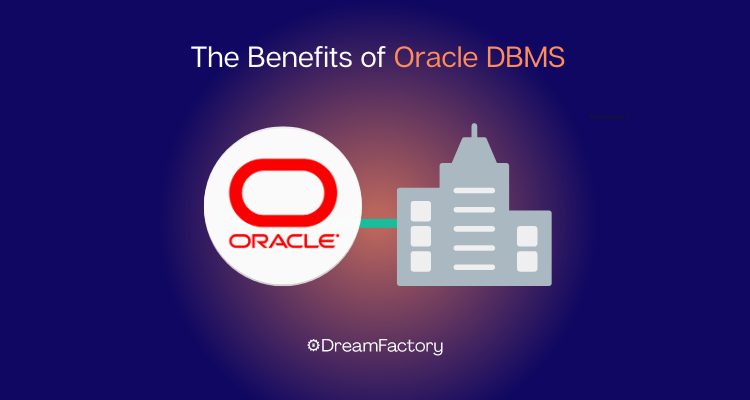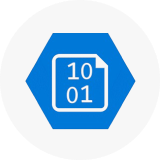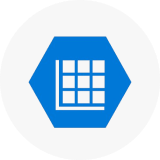
Oracle Database—or Oracle DBMS—consolidates, stores, and retrieves large amounts of big data. With a market value of $253,206, Oracle Corporation is one of the largest technology companies in the world. But why use Oracle DBMS in your organization? In this post, learn the benefits of Oracle DBMS and how DreamFactory makes it easier to use this relational database management system.
Here are the key things to know about the benefits of Oracle DBMS:
- Oracle DBMS is a relational database management system that helps organizations efficiently manage and organize large amounts of data.
- Using Oracle DBMS offers benefits such as scalability, high performance, data security, reliability and availability, and advanced analytics.
- Oracle DBMS supports seamless integration with various applications and systems, enabling data exchange and workflow automation.
- Oracle DBMS is suitable for both small businesses and large enterprises, offering different editions and licensing options to meet specific needs and budget.
- Oracle provides comprehensive technical support for DBMS products, including documentation, knowledge bases, forums, community resources, and dedicated support services like Oracle Premier Support and Oracle Advanced Customer Services.
Table of Contents
- Oracle DBMS, Explained
- Benefits of Using Oracle Database
- Oracle Pricing
- Why Use Oracle REST APIs?
- Get Started with Oracle DBMS with DreamFactory
- Frequently Asked Questions: Oracle DBMS
Oracle DBMS, Explained
Oracle DBMS is a relational database management system (RDBMS) created in 1971. Each Oracle database in the system stores and retrieves related information while maintaining relationships between different data types. In other words, Oracle DBMS lets you collect data from various sources and keep it in a secure and centralized location on your operating system. That makes it easier to manage workloads and apps in your organization.
Oracle's developers built DBMS around a relational database framework where users can access data objects via structured query language (SQL). Each database has a network component that communicates with other databases across networks. Once data exists inside an Oracle database, you might want to move it to a data warehouse like Oracle Autonomous Data Warehouse and run that data through business intelligence (BI) tools for reporting and analytics. Doing so can help you generate insights about your organization and improve decision-making.
Get even more value from Oracle DBMS by creating a live, documented, and standardized REST API for the platform in as little as five minutes. DreamFactory's Oracle REST API features include role-based access controls, stored procedure support, and real-time analytics. Start your free 14-day hosted trial to learn how.
Benefits of Using Oracle Database
The reasons you should use Oracle DBMS are extensive. Some of the greatest benefits of Oracle DBMS include its:
- Pricing
- Database performance
- Hybrid cloud environment
- Data security
- Data governance
- Scalability
- Backup options
- ...and more.
Let's examine these benefits a bit more closely.
Oracle Pricing
One of the biggest benefits of Oracle DBMS is its cost-effective, pay-as-you-go pricing model, where you pay only for the data you use on the platform. That can simplify database management costs in your organization and prevent unexpected bills. Oracle also compensates users with discounts, rewards, and software license portability for using its cloud infrastructure (Oracle Cloud Infrastructure) over extended periods. There are also different Oracle versions, including a Standard edition, Enterprise edition, and Express edition.
Database Performance
Another one of the benefits of Oracle DBMS is its high availability and performance. You can increase operations and query execution time with Oracle's performance optimization features, making it easier to retrieve the data you need.
Hybrid Cloud Environment
Each Oracle database exists in a secure hybrid cloud environment. That helps you reduce IT costs and use more data deployment options than other platforms.
Data Security
Why use Oracle? You might be wary about moving your company's sensitive data to an Oracle database. However, the platform uses data security protocols such as data encryption, multi-factor authentication, and IP blocklists. It also adheres to internationally recognized security standards such as PCI DSS.
Data Governance
Oracle also helps you comply with legislation such as GDPR and HIPAA, helping you avoid penalties for data governance non-compliance. You can even manage data quality and data stewardship workflows for additional peace of mind.
Other Benefits of Oracle DBMS
Here are some other reasons to choose Oracle DBMS for your data management needs:
- Scalability: You can scale your Oracle DB up or down depending on your data management requirements.
- Backup and recovery: It's easy to recover data with an Oracle database, thanks to Oracle's RMAN (Recovery Manager). You can even restore files during unexpected downtime and power outages.
- Several Databases Instances: Oracle DBMS lets you have several database instances on one server.
While there are many advantages of Oracle, using a REST API can optimize your Oracle database and provide even more value for your organization. DreamFactory lets you create an Oracle REST API in less than five minutes.
Why Use Oracle REST APIs?
By building API-driven applications, you can automate many of the tasks associated with data management and make better use of your resources.
DreamFactory connects Oracle through a live, documented, and standardized REST API, so you can benefit from these new features:
- Stored Procedure Support. DreamFactory can execute stored procedures and functions, helping your team reuse database logic instead of implementing new rules.
- Role-Based Access Controls. DreamFactory lets you create high-performance role-based access controls that prevent specified users from accessing tables, stored procedures, or other sensitive data.
- Multiple Databases, One API Response. Building an Oracle API lets you benefit from Data Mesh, where you can create relationships between Oracle DBMS and other databases such as Microsoft SQL Server.
- Real-Time Analytics. With DreamFactory's Elastic Stack integration, you can monitor Oracle API performance and generate insights on Kibana dashboards. Generate real-time insights into data consumption, API key usage, HTTP response codes, and more.
Want to use an Oracle API? DreamFactory does all the hard work for you. There's no need to worry about nodes, database support, data models, database administration, partitioning, caching, indexes, development tools, or other complicated concepts.
Get Started with Oracle DBMS with DreamFactory
Oracle DBMS provides you with a centralized location for all the data management activities in your organization. This popular and powerful relational database management system gives you superior database performance, data security, data governance, and scalability. Other advantages of Oracle DBMS include backup and recovery and the ability to manage data in a secure hybrid cloud environment.
Create an Oracle REST API in 30 seconds with open-source DreamFactory. All you need is your Oracle credentials, and DreamFactory will take care of the rest by creating OpenAPI documentation and securing your API with keys. Try DreamFactory for free and start building API integrations today.
Frequently Asked Questions: Oracle DBMS
What is Oracle DBMS?
Oracle DBMS (Database Management System) is a robust and widely used relational database management system developed by Oracle Corporation. It provides a comprehensive suite of tools and technologies to manage and organize large amounts of data efficiently.
What are the benefits of using Oracle DBMS?
Using Oracle DBMS offers several advantages for organizations, including:
- Scalability: Oracle DBMS can handle massive amounts of data and accommodate the growth of your organization, ensuring your database can scale as your business expands.
- High performance: Oracle DBMS is designed to deliver optimal performance, enabling faster query processing and data retrieval, enhancing overall system efficiency.
- Data security: Oracle DBMS incorporates advanced security features to protect your sensitive data, including encryption, access controls, and auditing capabilities, ensuring data confidentiality and integrity.
- Reliability and availability: Oracle DBMS is known for its high availability and fault-tolerant architecture, minimizing downtime and ensuring continuous access to critical data.
- Advanced analytics: Oracle DBMS provides powerful analytics and reporting capabilities, allowing organizations to gain valuable insights from their data and make informed business decisions.
Can Oracle DBMS integrate with other systems?
Yes, Oracle DBMS supports seamless integration with various applications and systems. It offers robust integration capabilities, including APIs, connectors, and tools, enabling organizations to connect Oracle databases with other software and platforms, facilitating data exchange and workflow automation.
Is Oracle DBMS suitable for small businesses?
Yes, Oracle DBMS is suitable for small businesses as well as large enterprises. It offers different editions and licensing options, allowing organizations to choose a version that aligns with their specific needs and budget. Oracle also provides resources and support tailored to small businesses to ensure successful implementation and management of the database system.
Does Oracle DBMS support cloud deployment?
Yes, Oracle DBMS provides cloud deployment options, including Oracle Cloud Infrastructure and Oracle Autonomous Database. These cloud-based solutions offer scalability, flexibility, and simplified management, allowing organizations to leverage the benefits of the cloud while using Oracle DBMS.
What kind of technical support does Oracle offer for DBMS?
Oracle offers comprehensive technical support for its DBMS products. This includes access to documentation, knowledge bases, forums, and community resources. Additionally, organizations can opt for Oracle support services, such as Oracle Premier Support and Oracle Advanced Customer Services, which provide dedicated assistance, proactive monitoring, and timely updates to ensure smooth operations of the DBMS.
Related Reading:
As a seasoned content moderator with a keen eye for detail and a passion for upholding the highest standards of quality and integrity in all of their work, Spencer Nguyen brings a professional yet empathetic approach to every task.
























 Blog
Blog
